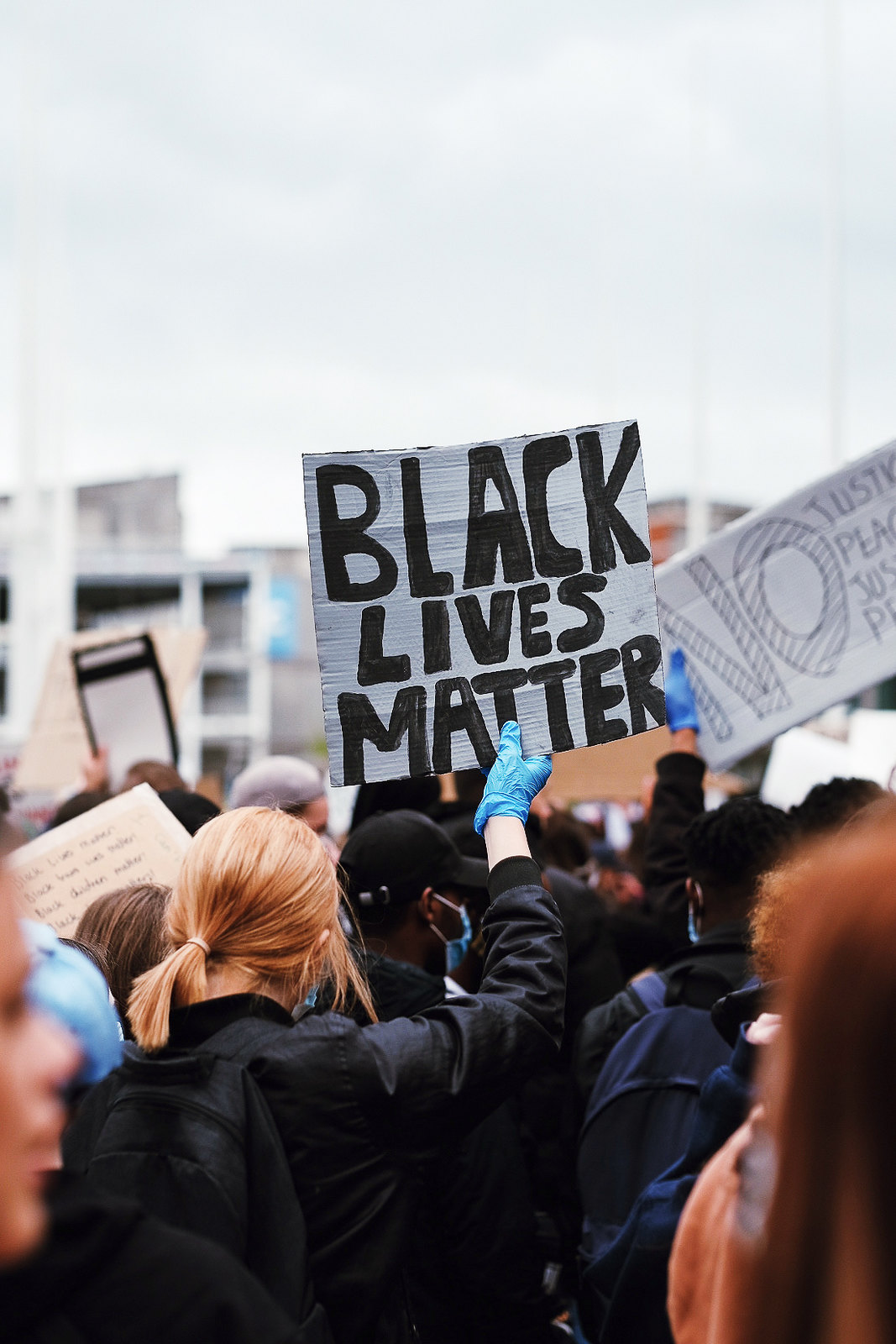
Activism takes different forms; from protesting in person to engaging online to donating, you can be an activist, online and off. A lot of people shy away from engaging with or considering themselves as an activist. Perhaps for fear of losing friends over heated conversations or alienating ourselves in the workplace.
An activist is simply someone who campaigns for social change. I'm certain we all have things we don't agree with and issues we feel passionately about. We have the power to change those things through our actions - that's all activism really is.
I don't expect every single social account online to discuss political issues just like I don't expect all TV shows or books to either. But I do believe we have a responsibility as individuals to continue educating ourselves away from the screen. Much of our history is ignored while many world events are glossed over, and so we have a duty to go looking for answers about the issues we care deeply about.
You don't have to 'get political' online but you should stand up for what you believe in. That can take different forms including calling out sexist, racist, homophobic, or speciesist language and habits when you see them; supporting organisations and charities through donations, volunteering, or protesting; engaging with difficult learning through podcasts, documentaries, and books.
There is no right or wrong way to do activism, unless you don't do it in any form at all. We need all different voices and approaches in order to combat unjust societal structures and beliefs. This is how you can stand up for what you believe in through activism, both online and off.
Educate
Activism starts with education. Read a wide range of books, watch a diverse collection of documentaries, and engage with scientific or academic papers. Identify the issues that are important to you and focus your education on those topics. Explore a variety of facts, opinions, and stories surrounding those issues to get a better understanding of how they affect you, others, and the world.
Question
Ask yourself questions that put under scrutiny your opinions, perspectives, actions, and privileges. We all do and say things that are problematic. The important part is identifying that behaviour and language, understanding where and why we've learned them, and processing that information so we can make changes. Questioning our core beliefs and values, the way we see the world and the opinions we hold, is key to making change first in ourselves and then influencing others to do the same.
Discuss
Don't shy away from the hard conversations to be had with others. Remember your online space is often a bubble that creates an echo chamber of voices and faces that reflect the same opinions and hold the same beliefs as you. Getting outside of that space can be difficult.
It won't feel comfortable to challenge and discuss certain topics with your friends and family, or followers online. But it's important we have these conversations in order to make changes to the way others see the world, including ourselves.
Be prepared to be called out for the things you say and do that are problematic. Sit with the criticism, take it on-board, and make changes to how you go forward. All of us make mistakes, say the wrong thing, do something hurtful; we may not mean to but it's important to accept those failures, apologise and learn from them, make changes and move forward.
Contact
Demand change by getting in touch with local MPs, businesses, organisations, groups, and initiatives. Tell them if you're disappointed with their actions, how they can make changes, and what they can do to improve their practices. Putting your words into writing has a huge impact on the changes that can be made.
Demand and expect change from yourself, your workplace, friends, family, online followers, organisations, and businesses. Hold them (and yourself) accountable for their actions and missteps. This involves having hard conversations and disrupting the norm.
Donate
One of the most powerful ways you can help is by using your wealth. Consider if you can financially support the organisations, charities, and individuals doing the hard work. That can be done in a variety of ways through donations, purchases, subscriptions, or memberships. Go beyond supporting large charities and organisations; pay the people who you follow online that educate you on the issues you care deeply about.
Protest
If you're able to, protesting can have a profound impact. Showing your physical presence on the streets and using your voice to shout for the change you want to see can inspire others to question their beliefs and join in with the activism. Protests are not for everyone and there should be no guilt for not participating in physical protests; other forms of activism are just as valid.
Volunteer
If protesting isn't for you, volunteering might be. If you have the time and ability, volunteering for charities and organisations to help progress the cause is an effective way to show your support. It's a fantastic way to gain knowledge and experience about the causes you care passionately about, and make connections with others who are interested in the same issues you are.
Commit
For activism to be effective on any scale, there needs to be a life-long commitment to learning, sharing, and educating in order to progress and make a permanent change. Commit to continuing your activism, in many different forms, to help put into effect the change you want to see in the world. Never stop learning and sharing what you know. The most powerful statement you can make is by embodying your beliefs through the choices you make — where you shop, what you buy, who you support, what you eat, the clothes you wear. Live your beliefs.

